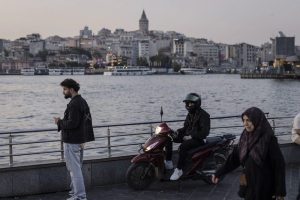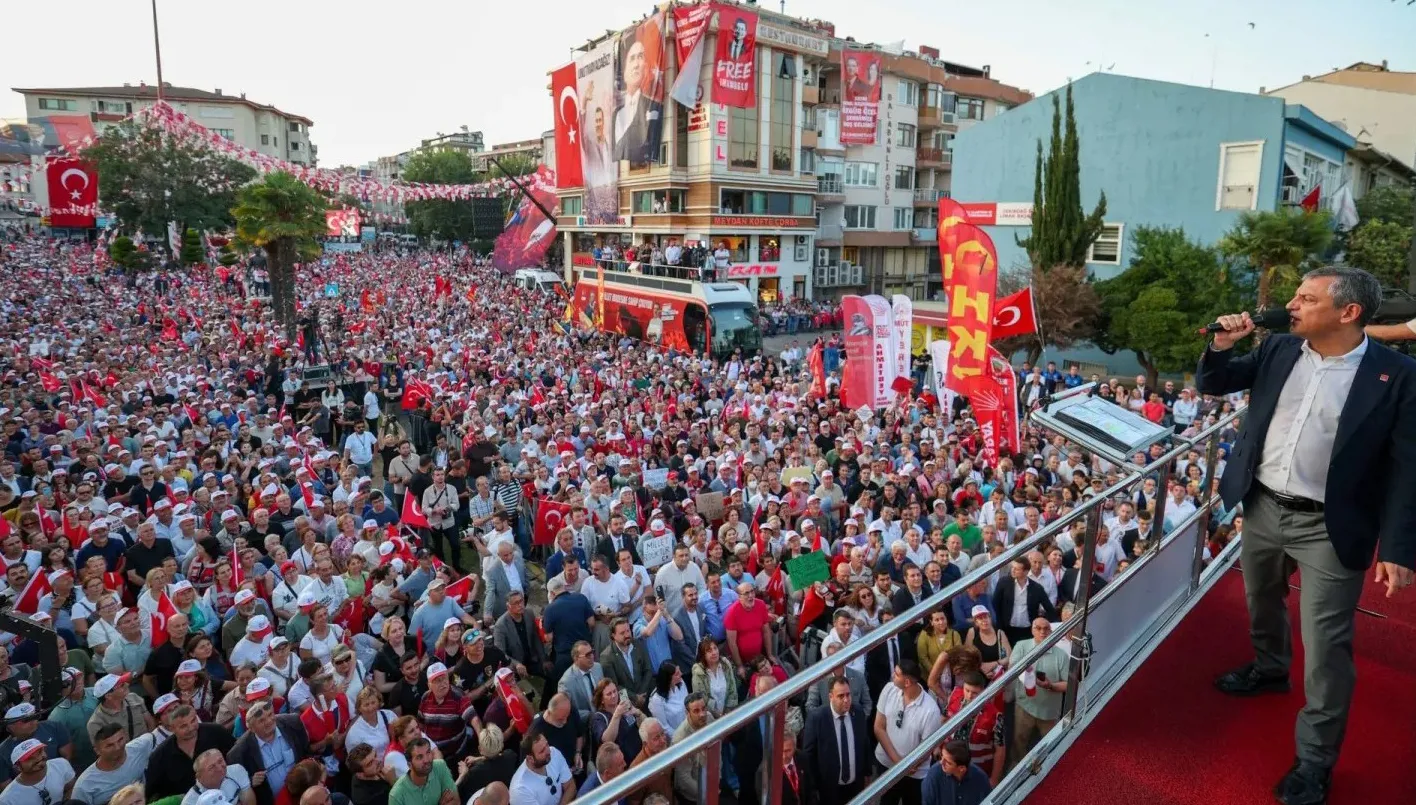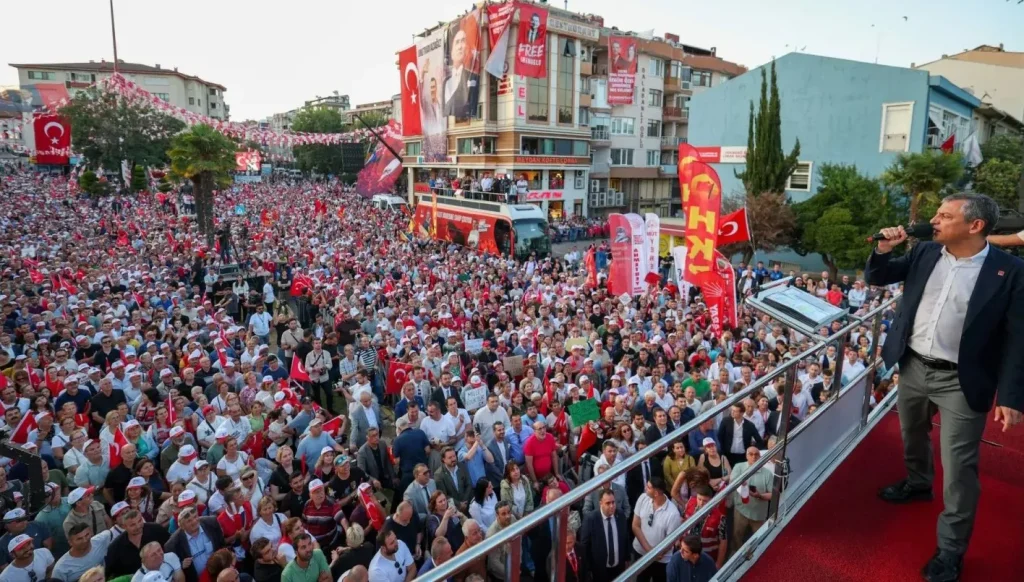A judicial ruling by Istanbul’s civil court has shaken the Turkish political scene to its core. In an unprecedented move, the court on September 2 annulled the results of the regional congress of the Republican People’s Party (CHP) – Turkey’s largest opposition party – held in October 2023, and appointed a guardian to manage the Istanbul branch.
This decision is not merely an internal party dispute but a critical test for the future of Turkish democracy, the balance of power between government and opposition, and the independence of the judiciary.
Simultaneously, raids against CHP municipalities continued, starting on October 30, 2024, with the arrest of Ahmet Özer, mayor of Esenyurt, in a dawn raid.
In connection with the investigation of businessman Aziz İhsan Aktaş, who was released after benefiting from the “effective remorse law,” arrest warrants were issued for seven employees in the Avcılar and Beşiktaş municipalities. Istanbul’s financial crimes unit conducted raids at the homes of these employees early Wednesday, detaining them. Additionally, the mayors of Beşiktaş, Reza Akbulut, and Avcılar, Ötükaner Çaykara, remain imprisoned following their conviction in the Aktaş investigation and suspension from their duties.
Guardianship Over Turkey’s Largest Opposition Party
The court ruling represents a controversial legal precedent for three reasons:
- First, instead of intervention by the Constitutional Court, the body responsible for such disputes, the decision came from a primary civil court (No. 45 in Istanbul), expanding judicial interference in internal party affairs to unprecedented levels.
- Second, the ruling was based on three main justifications:
- Violation of party regulations and internal law by relocating the congress from the Sarıyer district to the Haliç Center in Beyoğlu, allegedly breaching Article 12 of the party bylaws and Turkish Law No. 2820 on political parties.
- Allegations of systematic fraud including accusations of paying bribes ranging from 150,000 to 350,000 Turkish lira (5,000-10,000 USD) to delegates, distributing tablets, and promising jobs in CHP-governed municipalities.
- Vote inflation: 612 votes were counted at a congress that was supposed to have only 600 accredited delegates.
- Third, the accompanying measure was not limited to annulling the congress results but also included freezing the membership of 196 delegates and appointing a five-member guardianship board led by Gursel Tekin, a divisive figure who resigned from the party in 2024 over ideological disputes but never officially submitted his resignation, raising serious questions about the legitimacy of his appointment.
- Reformists: Led by former Istanbul Mayor Ekrem İmamoğlu (currently imprisoned), supported by young and liberal voters, and the main backers of current party leader Özgür Özel and his reform agenda.
- Traditionalists: Led by former party leader Kemal Kılıçdaroğlu, represented by the party’s old bureaucracy, favoring centralization and caution.
- First scenario: Prolonged legal attrition, the most likely, where the CHP continues its battle through legal channels, appealing to the Constitutional Court and then the European Court of Human Rights. This long process keeps the party in organizational paralysis, especially in Istanbul, the opposition’s stronghold and largest voter base, allowing the ruling AKP to gain electoral advantages by exploiting the opposition’s internal troubles.
- Second scenario: Internal rebellion and split, if legal paths fail, could lead to a mass defection and formation of a new party or rival bloc. This would be disastrous for the opposition as it divides its votes and ensures the ruling party’s dominance for coming periods.
- Third scenario: Street mobilization and escalation, currently less likely, but signs have appeared through youth protests under the slogan “Hands off our democracy.” Increasing judicial repression might trigger larger demonstrations, especially if the party’s general congress scheduled for September 15 is canceled. However, this scenario is risky due to the tense political environment and political prisoners from the opposition.
- Fourth scenario: Deterrent international intervention, where increased pressure from the EU and others raises the cost of the ruling on the Turkish government. If major countries and financial institutions link continued relations and investments to the integrity of the democratic process, a tactical retreat by the regime might occur, possibly through new party elections under international supervision.
Turkish legal experts have considered this ruling a dangerous precedent as it legalizes “retroactive intervention,” making it possible to annul any internal democratic process years after it took place, creating permanent instability and threatening any opposition party with subsequent accountability.
Fears of Division Within the CHP
The decision deeply impacted the structure of the Turkish opposition and its broader democratic project. It revealed a profound split within the CHP between two main factions:
Özel reacted strongly by immediately expelling Tekin, the court-appointed guardian, from the party, calling the ruling a “palace-backed coup.” This division threatens not only to tear the party apart but also to prevent it from fulfilling its essential role as an effective opposition.
The pro-Kurdish Democracy Party (Dem) condemned the ruling, describing it as a new tool “to criminalize the opposition,” comparing it to the guardianship imposed on Kurdish municipalities. The Good Party criticized judicial interference but avoided fully supporting the CHP, reflecting the fragility of the previous opposition alliance.
Internationally, a draft report by the European Union noted a “worrying pattern of judicial politicization,” and Human Rights Watch warned of an “accelerating trend of legal authoritarianism.”
The ruling sent a message that the judiciary is no longer a guardian of democracy but a tool in political conflict. This fear was immediately reflected in the markets, where the main stock index (BIST100) dropped more than 5%, and bank shares lost 6% of their value, forcing authorities to activate sales restrictions to avoid a collapse, signaling investors’ sensitivity to political instability.
Four Possible Scenarios for the CHP Crisis
In light of this crisis, several scenarios could shape Turkey’s political future until and beyond the 2028 elections.
The Istanbul congress crisis is not merely a dispute over a party branch chairmanship but a new chapter in a broader struggle over Turkey’s political system. Turning the judiciary into a political battleground targets not only the CHP but undermines a fundamental democratic principle: the right of parties to organize their internal affairs without fear of retroactive interference.
The ruling revives the bureaucratic-military “guardianship” model Turkey experienced for decades, but with new tools. The future now depends on the opposition’s ability to overcome its divisions and the Turkish electorate’s determination to reject any infringement on their right to freely and fairly choose their representatives. The battle over Istanbul is essentially a battle for Turkey’s democratic future.














Recommended for you
Exhibition City Completes About 80% of Preparations for the Damascus International Fair Launch
Talib Al-Rifai Chronicles Kuwaiti Art Heritage in "Doukhi.. Tasaseem Al-Saba"
Unified Admission Applications Start Tuesday with 640 Students to be Accepted in Medicine
Egypt Post: We Have Over 10 Million Customers in Savings Accounts and Offer Daily, Monthly, and Annual Returns
His Highness Sheikh Isa bin Salman bin Hamad Al Khalifa Receives the United States Ambassador to the Kingdom of Bahrain
Al-Jaghbeer: The Industrial Sector Leads Economic Growth